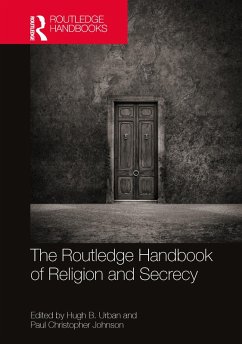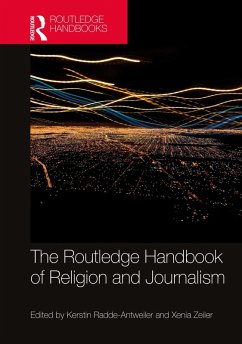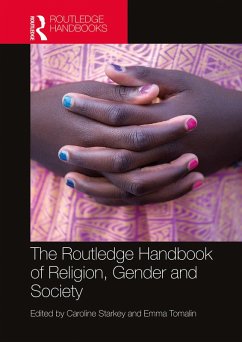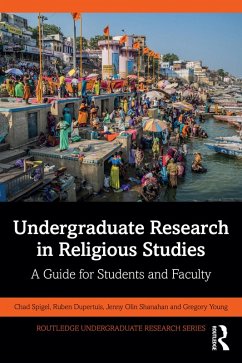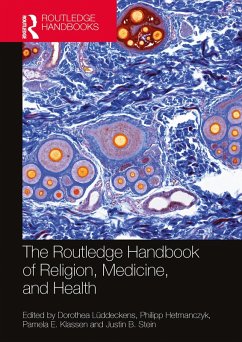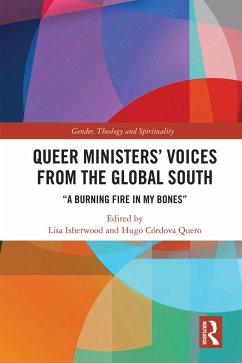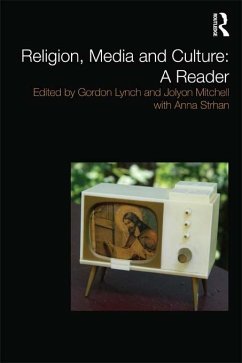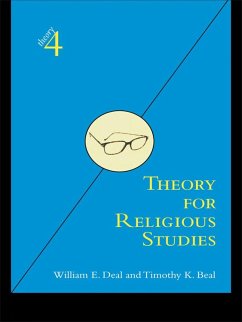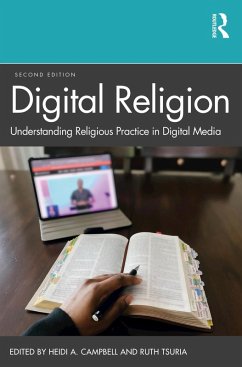
The Routledge Handbook of Research Methods in the Study of Religion (eBook, ePUB)
Versandkostenfrei!
Sofort per Download lieferbar
49,95 €
inkl. MwSt.
Weitere Ausgaben:

PAYBACK Punkte
25 °P sammeln!
This substantially revised second edition of The Routledge Handbook of Research Methods in the Study of Religion remains the only comprehensive survey in English of methods and methodology in the discipline. Designed for non-specialists and upper undergraduate-/graduate-level students, it discusses the range of methods currently available to stimulate interest in unfamiliar methods and enable students and scholars to evaluate methodological issues in research.The Handbook comprises 39 chapters - 21 of which are new, and the rest revised for this edition. A total of 56 contributors from 10 coun...
This substantially revised second edition of The Routledge Handbook of Research Methods in the Study of Religion remains the only comprehensive survey in English of methods and methodology in the discipline. Designed for non-specialists and upper undergraduate-/graduate-level students, it discusses the range of methods currently available to stimulate interest in unfamiliar methods and enable students and scholars to evaluate methodological issues in research.
The Handbook comprises 39 chapters - 21 of which are new, and the rest revised for this edition. A total of 56 contributors from 10 countries cover a broad range of topics divided into three clear parts:
The first section addresses general methodological issues: including comparison, research design, research ethics, intersectionality, and theorizing/analysis. The second addresses specific methods: including advanced computational methods, autoethnography, computational text analysis, digital ethnography, discourse analysis, experiments, field research, grounded theory, interviewing, reading images, surveys, and videography. The final section addresses specific techniques: including coding, focus groups, photo elicitation, and survey experiments.
Each chapter covers practical issues and challenges, theoretical bases, and their use in the study of religion/s, illustrated by case studies.
The Routledge Handbook of Research Methods in the Study of Religion is essential reading for students and researchers in the study of religion/s, as well as for those in related disciplines.
The Handbook comprises 39 chapters - 21 of which are new, and the rest revised for this edition. A total of 56 contributors from 10 countries cover a broad range of topics divided into three clear parts:
- Methodology
- Methods
- Techniques
The first section addresses general methodological issues: including comparison, research design, research ethics, intersectionality, and theorizing/analysis. The second addresses specific methods: including advanced computational methods, autoethnography, computational text analysis, digital ethnography, discourse analysis, experiments, field research, grounded theory, interviewing, reading images, surveys, and videography. The final section addresses specific techniques: including coding, focus groups, photo elicitation, and survey experiments.
Each chapter covers practical issues and challenges, theoretical bases, and their use in the study of religion/s, illustrated by case studies.
The Routledge Handbook of Research Methods in the Study of Religion is essential reading for students and researchers in the study of religion/s, as well as for those in related disciplines.
Dieser Download kann aus rechtlichen Gründen nur mit Rechnungsadresse in A, B, BG, CY, CZ, D, DK, EW, E, FIN, F, GR, HR, H, IRL, I, LT, L, LR, M, NL, PL, P, R, S, SLO, SK ausgeliefert werden.




